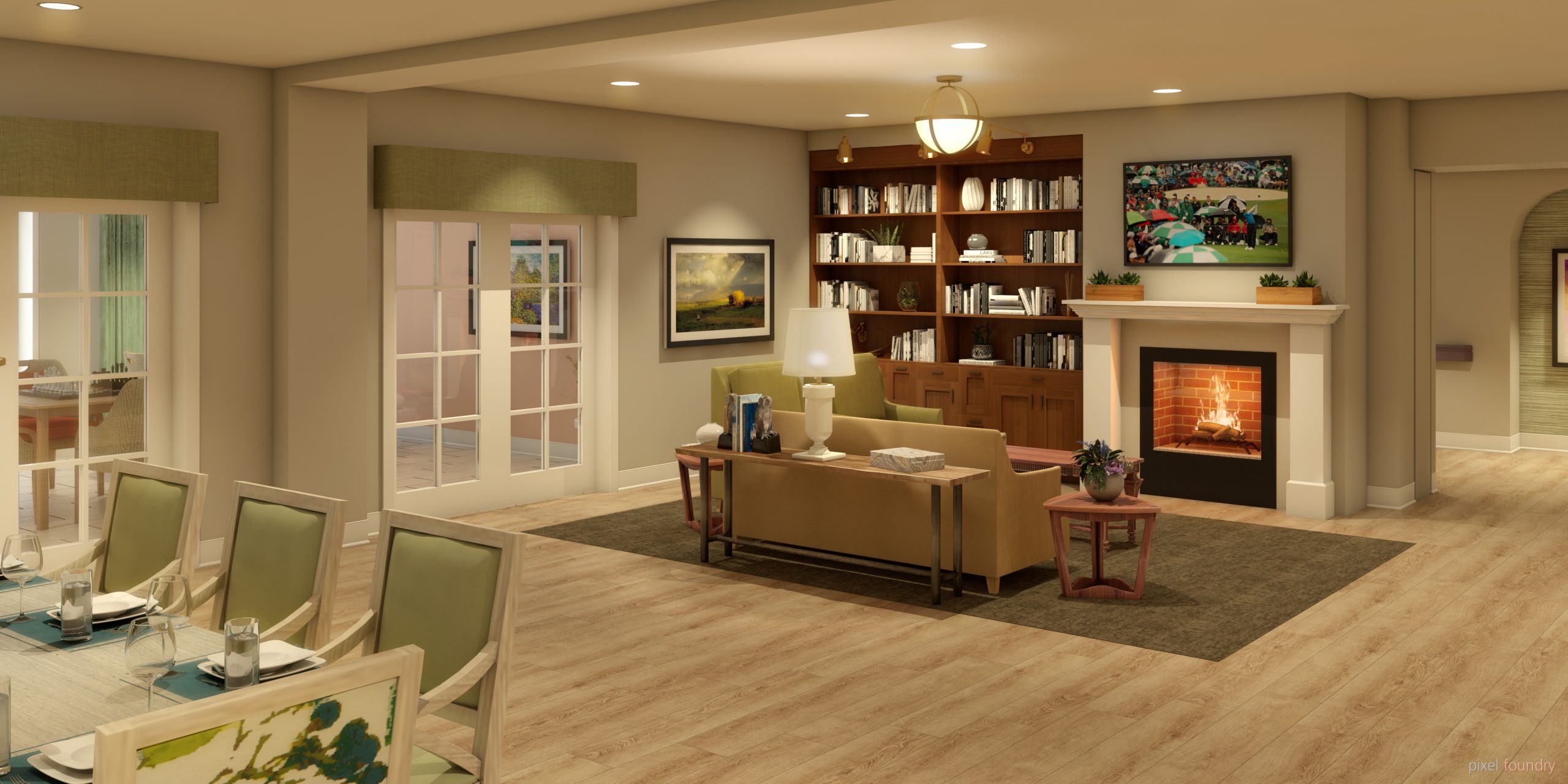Charlotte Memory Care: Safe and Secure Environment for Seniors
Charlotte Memory Care: Safe and Secure Environment for Seniors
Blog Article
Producing a Safe and Helpful Atmosphere: In-Home Memory Care Basics
Developing a nurturing and safe and secure atmosphere for individuals calling for in-home memory care is extremely important to their health and high quality of life. From guaranteeing safety within the living space to using effective interaction methods and implementing memory-friendly layout aspects, there are essential components that contribute to a holistic care strategy. By concentrating on developing a helpful ecosystem that deals with the one-of-a-kind needs of those with memory problems, caregivers can dramatically improve the daily experiences of their liked ones.

Safe Living Atmosphere
When providing in-home memory treatment for people with cognitive disabilities,Creating a safe and hazard-free living atmosphere is paramount. Making certain the security of the specific with memory loss is vital to stop mishaps and promote a feeling of health. One vital facet of creating a risk-free living environment is to eliminate any kind of potential risks that can lead to slips, journeys, or drops. This includes protecting loosened carpets, guaranteeing sufficient lighting in all areas of the home, and keeping paths free from mess.
In addition, making use of innovation such as motion sensing units and alarm systems can notify caretakers if the individual wanders or is in distress. By focusing on safety and security procedures and removing possible dangers, caregivers can provide a safe and secure and helpful atmosphere for individuals with cognitive disabilities receiving at home memory care.
Efficient Communication Strategies
Applying tailored interaction techniques is crucial in promoting significant communications with individuals with cognitive disabilities in the context of in-home memory care. Reliable interaction plays a crucial function in creating a helpful setting that enhances the well-being and lifestyle for people with memory issues. When interacting with a person experiencing cognitive decline, it is very important to make use of easy and clear language, keep a calm and positive tone, and provide visual signs to assist comprehension.
One secret approach is to practice active listening, revealing compassion, patience, and respect during discussions. Non-verbal signs such as faces and body language can likewise aid share understanding and support. Additionally, utilizing reminiscence treatment by making use of or discussing past experiences music and art can tap into lasting memories, promoting and stimulating connections interaction.
Furthermore, including routine routines and constant communication patterns can supply a feeling of experience and protection for people with memory problems. By applying these communication techniques, caregivers can establish meaningful links and advertise a sense of convenience and depend on in the at home memory care setting.
Memory-Friendly Design
Given the importance of creating a supportive environment for people with memory problems with efficient communication techniques, the incorporation of memory-friendly layout components in the home ends up being necessary in enhancing their daily experiences and overall health. Memory-friendly style concentrates on improving safety, convenience, and self-reliance for individuals with cognitive problems. Basic adjustments can make a significant distinction, such as utilizing contrasting shades to improve exposure and decrease confusion, integrating clear signage to assist navigating, and decreasing mess to avoid sensory overload.
Including familiar components from the individual's past, such as individual photos or preferred items, can evoke favorable memories and create a feeling of knowledge. Furthermore, guaranteeing appropriate lights degrees, installing grab bars in washrooms, and executing non-slip floor covering can aid protect against drops and injuries. Creating a relaxing and relaxing atmosphere via using acquainted fragrances, soft appearances, and tranquil audios can also advertise leisure and decrease anxiety. By incorporating these memory-friendly design aspects, caregivers can supply a website here helpful and secure living space that allows individuals with memory problems to keep their independence and high quality of life.
Daily Routine Planning
When establishing an everyday routine for individuals with memory problems, careful planning is vital to support their cognitive function and overall wellness. Developing a structured routine can assist decrease complication, stress and anxiety, and disorientation frequently experienced by those with memory impairments. Begin by incorporating acquainted tasks that straighten with the person's passions and choices. Consistency in day-to-day regimens can supply a complacency and security, helping in the conservation of cognitive capacities.
Adaptability is key, as some days may require click for info adjustments based on the individual's mood and energy levels. On a regular basis reviewing and adjusting the day-to-day schedule will help ensure its effectiveness in promoting a comforting and positive environment for people with memory challenges.
Support Group Execution
Developing a durable network of encouraging people plays an essential duty in enhancing the top quality of treatment and health for people needing memory assistance. Member of the family, friends, medical care specialists, and area sources can all add to creating a strong assistance system. Interaction amongst these individuals is important to guarantee that the needs of the individual with memory obstacles are fulfilled successfully.
Member of the family are frequently the primary caretakers and form the foundation of the support group. They offer day-to-day treatment, emotional assistance, and companionship. When needed to protect against burnout and make sure the best feasible care for their liked one., it is crucial for family participants this post to look for support and reprieve.
In addition to household assistance, including medical care specialists such as therapists, physicians, and nurses can offer specialized care and advice. These specialists can use beneficial understandings, clinical recommendations, and aid in managing the person's problem.

Final Thought
In conclusion, producing a encouraging and secure atmosphere for individuals with memory treatment demands is essential for their wellness. By establishing a risk-free living atmosphere, making use of reliable communication techniques, including memory-friendly design components, preparing everyday regimens, and applying a solid support system, caretakers can help improve the lifestyle for those with memory loss. These necessary parts collaborate to create a nurturing and empowering environment that advertises freedom and boosts general lifestyle.
Producing a hazard-free and safe living atmosphere is critical when providing at home memory treatment for people with cognitive problems. By focusing on security steps and removing possible risks, caregivers can supply a helpful and protected atmosphere for people with cognitive problems receiving in-home memory care.
Developing a robust network of supportive individuals plays a crucial function in enhancing the top quality of care and health for people needing memory support - Charlotte Memory Care. Interaction among these people is necessary to guarantee that the demands of the private with memory difficulties are fulfilled efficiently

Report this page